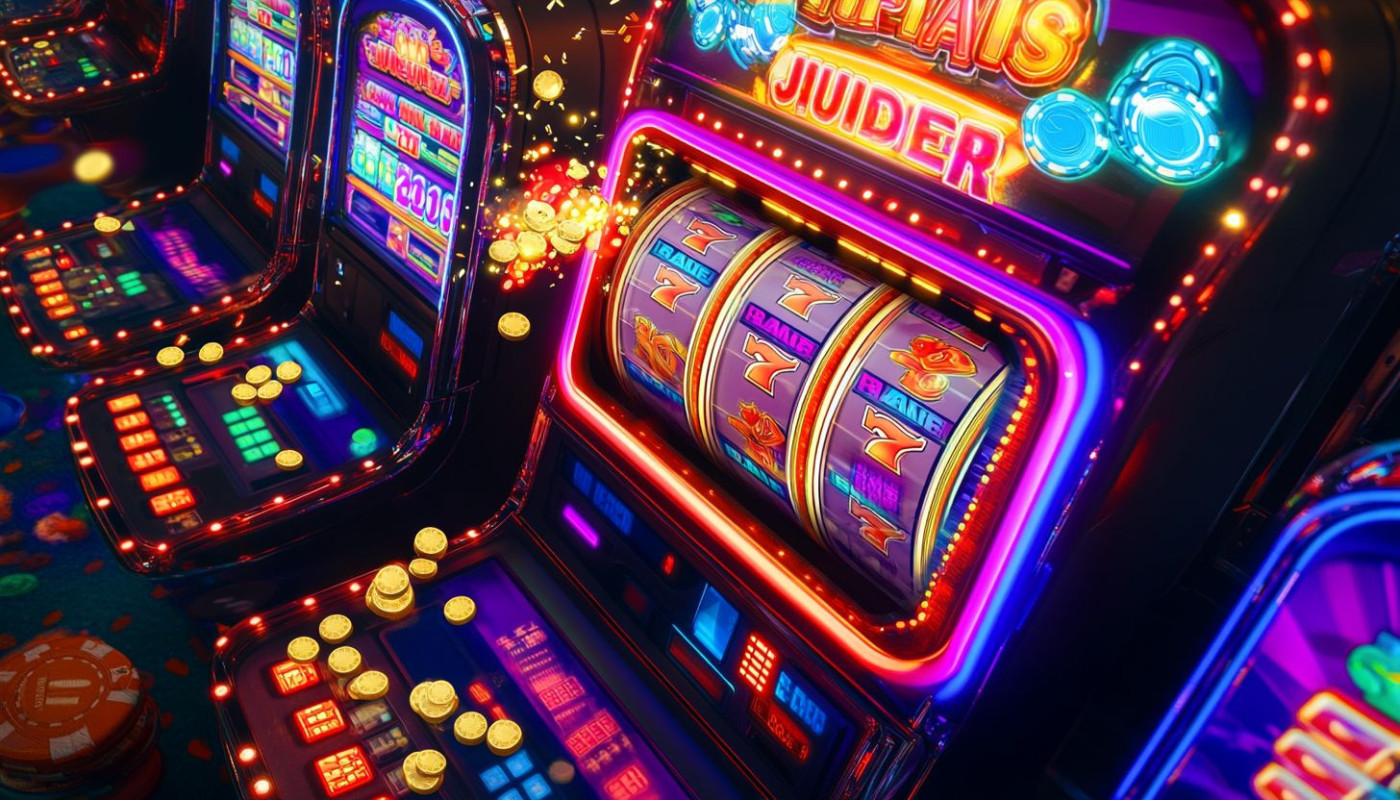Table of contents
The allure of the slot machine is a complex phenomenon, a blend of psychological nuances and human nature's inherent intrigue for the unknown. Slot machines, with their flashing lights, enticing sounds, and the promise of a potential windfall, have long held a grip on the collective psyche of gamblers worldwide. The fascinating compulsion that draws people to these games isn't purely about the prospect of winning money; it's also about the experience, the suspense, and the thrill of the unknown. This article delves into the psychological appeal of slot machines, exploring the captivating elements that make them an enduring attraction for many.
Understanding the Psychology of Gambling
The introductory phase in grasping the allure of slot machines involves diving into the broad understanding of gambling psychology. This investigation furnishes us with vital awareness into the human psyche and its reaction to risk, reward, and unpredictability. Some of the SEO terms to incorporate are psychology of gambling, risk and reward, uncertainty, slot machines, and mental impulse. The intermittent reinforcement process, an academic term where incentives are given at an unpredictable rate, can be highlighted as a primary element affecting gambling conduct.
The Role of Sensory Stimulation
In relation to the psychological appeal of slot machines, the part played by sensory stimulation is of considerable significance. Slot machines typically feature dazzling lights, captivating sounds, and smooth animations, which are not merely for aesthetic purposes. They are carefully crafted to engage the senses and foster an immersive experience. These features, which we'll refer to as 'sensory stimulation', 'immersive experience', and 'aesthetics of slot machines', serve to stimulate the senses, thus enhancing the overall appeal of the game.
Moreover, the interplay between sensory stimulation and the psychological attraction of slot machines can also be viewed from the lens of 'operant conditioning'. This is a key psychological concept that pertains to learning that occurs through reinforcement or punishment. In the context of slot machines, the prospect of winning or losing serves as a powerful form of reinforcement or punishment, encouraging continued play and enhancing the overall engagement and appeal of the machines.
The Attraction of Immediate Gratification
Beyond the sensory excitement, one of the key elements in the psychological allure of slot machines is the promise of instant gratification. The prospect of securing a substantial prize with a simple push of a button delivers an adrenaline rush that is difficult to deny. It's a question of immediate rewards, or in SEO terms, 'instant gratification', 'quick wins', and the 'thrill of gambling'. This sensation is closely linked to the release of dopamine, a neurotransmitter associated with the brain's reward system, illustrating the complex interplay between our neural circuitry and our attraction to these games of chance. This factor significantly shapes the captivating charm of slot machines.
The Illusion of Control and Near Misses
Another significant factor contributing to the allure of slot machines is the illusion of control paired with the occurrence of near misses. This misguided perception gives players a false sense of mastery over the game, making it all the more enticing. Near misses, instances where the player narrowly misses a win, further heightens the thrill of the game, stoking anticipation for the succeeding round.
This thrill and suspense can be likened to the allure of detective novels where the reader eagerly awaits the revelation of the culprit, hanging on to every near revelation a clue provides. In the context of slot machines, the player's hope of hitting the jackpot fuels the pull of every lever or push of a button.
An important concept to consider in this discussion is the 'gambler's fallacy'. This is the erroneous belief that if an event occurs more frequently than average during a given period, it will occur less frequently in the future. This fallacy often fuels the gambler's motivation to continue playing, despite continuous losses, feeding into the psychological appeal of slot machines.
Slot Machines and Social Interaction
The social interaction inherent in the world of slot machines plays a pivotal role in their psychological appeal. Many might assume that the act of playing slot machines is an individual activity. Despite this, the shared excitement and suspense that arises from near-winning can foster a strong sense of camaraderie amongst players. This phenomenon is known as social facilitation, a term that refers to the improvement in performance when other individuals are present. This aspect of human psychology can significantly enhance the allure of slot machines, offering not only a chance at financial gain but also a unique social experience. The slot machine's ability to generate shared excitement and camaraderie is an indispensable factor in their enduring popularity.
Similar

How To Choose A Secure Online Casino And Betting Platform?

Maximizing Wins In Virtual Casino Slots: Strategic Tips

How Modern Technology Ensures Secure Online Casino Experiences?

Exploring The Latest Trends In Sustainable Fashion For A Stylish Future

Exploring The Thrills Of A Road Crossing Casino Game With Million Dollar Prizes

The Evolution Of Arcade Games Into Online Gambling Platforms

How Digital Platforms Are Changing The Way Sports Leagues Operate

Understanding Online Casino Payment And Withdrawal Methods

Exploring The Nuances Of Traditional Japanese Crafts Online

Understanding The Rules And Gameplay Of Chicken-themed Gambling Games

Exploring The Rise Of Online Slots Popularity In Recent Years

Exploring The Benefits Of Integrated Music Platforms For Artists And Fans

Exploring Game Diversity In Online Casinos

Step-by-step Guide To Registering For Online Casino Platforms

Understanding The Rules For Playing Online Slot Games

A Comprehensive Guide To Daily Promotions In Online Gaming

Exploring The Evolution Of Online Casino Gaming In 2024

Strategies To Maximize Winnings In Chicken-themed Slot Games

The Evolution Of Bicycle Design Through History

Exploring Alternative Payment Options In Online Gambling: A Focus On Jeton

Understanding Factors That Influence Auto Insurance Rates In San Francisco

Strategies For Maximizing The Benefits Of Welcome Bonuses At Online Casinos

Probing the Dark Underworld of Illegal Gambling

Craps: The Underestimated Casino Game

Overcoming the House Edge: A Professional Gambler's Guide

Winning Big: Unforgettable Stories from the Casino

Demystifying the 'Luck' Factor in Gambling

Unconventional Strategies for Winning at Roulette

